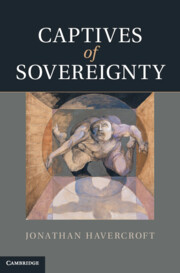6 - Authority, criteria, and the new social contract
from Part II
Published online by Cambridge University Press: 07 September 2011
Summary
As we saw at the end of Chapter 4, skepticism is a political problem because it renders all value judgments uncertain. In the seventeenth century, value judgments tended to focus upon questions of religion. Religions were the primary institutions that guided people’s lives. As such, disputes over which religion individuals should follow were also disputes about values in many other areas of their lives. While it has become fashionable in academic circles to argue that we now live in a secular age, and that non-religious grounds now provide the basis for our social and political values, I would argue that the real contemporary condition is more a proliferation of possible grounds for value claims – including religion, tradition, and cultural identity – than the displacement of religion by rational grounds according to which we make our value judgments. As such, the question that Hobbes and Spinoza grappled with – how do we know which religion offers the correct grounds for our value judgments and practices? – has broadened into the more general question of what – if anything – can serve as the ultimate ground for our values? As I discussed in Chapter 4, Hobbes and Spinoza believed that sovereignty resolves this problem by replacing the finality of sovereign authority for the certainty that comes from confidence and consensus in judgments. In Chapter 3 I discussed how a similar concern about the dangers of ethical skepticism prompted Hobbes and Spinoza to make the sovereign the final arbiter in ethical disputes. Given the argument that I pursued in Chapter 5 – namely that a particular picture of how language operates leads to the power of skeptical arguments, and that an understanding of language as embedded in our form of life can free us from this captivity – how can this understanding of language as a form of life help us imagine alternative bases for political values that do not fall prey to ethical and value skepticism? This question is all the more pressing, given that Wittgensteinian philosophy is often accused of paving the way for ethical relativism.
- Type
- Chapter
- Information
- Captives of Sovereignty , pp. 163 - 196Publisher: Cambridge University PressPrint publication year: 2011



